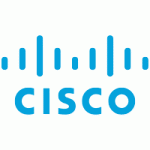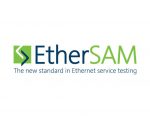 Cisco as well as many other vendors locks their equipment to only work with their own branded SFPs. The problem is that none of the big vendors actually manufactures the modules themselves – they use 3rd parties like avago or finisar. This extremely shameful practice is wide spread so almost everyone does this – Cisco, Juniper, Brocade or NetApp all are guilty of this. One issue is price – the aforementioned companies are willing to ask you 10 or even 100 times more for a branded sfp under the pretense of supportability.
Cisco as well as many other vendors locks their equipment to only work with their own branded SFPs. The problem is that none of the big vendors actually manufactures the modules themselves – they use 3rd parties like avago or finisar. This extremely shameful practice is wide spread so almost everyone does this – Cisco, Juniper, Brocade or NetApp all are guilty of this. One issue is price – the aforementioned companies are willing to ask you 10 or even 100 times more for a branded sfp under the pretense of supportability.
EtherSam (Y.1564) explained
 This is the last article (at least for now) from the series about testing methodologies and testing standards. I will cover some bits and pieces in the region of testing in general but it won’t be as heavy on the theory as I want to write some “hands-on” scenarios for combined use of Wireshark and PackEth as well as about some multicast scenarios. Also I will be doing more Cisco and Juniper stuff so it is quite likely I will be blogging some configs and labs. Anyway enough about the future plans and let’s start with the topic at hand.
This is the last article (at least for now) from the series about testing methodologies and testing standards. I will cover some bits and pieces in the region of testing in general but it won’t be as heavy on the theory as I want to write some “hands-on” scenarios for combined use of Wireshark and PackEth as well as about some multicast scenarios. Also I will be doing more Cisco and Juniper stuff so it is quite likely I will be blogging some configs and labs. Anyway enough about the future plans and let’s start with the topic at hand.
Port isolate vs. Mac Forced Forwarding
 Let me first say that these two features are supposed to do very similar things – they are designed to separate access users so their traffic cannot go directly between them without any control. The firs possible solution is a port-isolate command which separates L2 and L3 traffic between the isolated (access) ports. This leads to complete separation with all the advantages and disadvantages. The biggest disadvantage is that all traffic trunked up to another switch where it will be dealt with – usually it will be routed. As the separation is also on L2 and L3 you cannot use arp proxy which could resolve the overhead on access switch. The advantage is that the separation is absolute which could be quite useful in ISP’s access networks.
Let me first say that these two features are supposed to do very similar things – they are designed to separate access users so their traffic cannot go directly between them without any control. The firs possible solution is a port-isolate command which separates L2 and L3 traffic between the isolated (access) ports. This leads to complete separation with all the advantages and disadvantages. The biggest disadvantage is that all traffic trunked up to another switch where it will be dealt with – usually it will be routed. As the separation is also on L2 and L3 you cannot use arp proxy which could resolve the overhead on access switch. The advantage is that the separation is absolute which could be quite useful in ISP’s access networks.
QoS on Huawei equipment – Custom Queunig
 After some time I have finally some energy to publish a bit more of some stuff about Huawei QoS. The following article will be concentrating on Custom Queuing as it is seen on VRP 3.40 on AR series routers (namely AR46 and AR28).
After some time I have finally some energy to publish a bit more of some stuff about Huawei QoS. The following article will be concentrating on Custom Queuing as it is seen on VRP 3.40 on AR series routers (namely AR46 and AR28).
IPsec overview
 IPSec is a framework of symmetric encryption of IPv4 protocol which is good for VPN creation etc. Parts of the IPSec are Internet Key Exchange (binding all the pieces together), Diffie-Hellmanalgorithm (for secure key exchange) and symmetric pre-shared key or certificate based authentication. This main three components make IPSec very reliable and very difficult to break into (even though some of the algorithms are weak/vulnerable).
IPSec is a framework of symmetric encryption of IPv4 protocol which is good for VPN creation etc. Parts of the IPSec are Internet Key Exchange (binding all the pieces together), Diffie-Hellmanalgorithm (for secure key exchange) and symmetric pre-shared key or certificate based authentication. This main three components make IPSec very reliable and very difficult to break into (even though some of the algorithms are weak/vulnerable).
